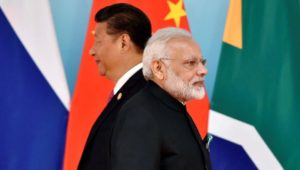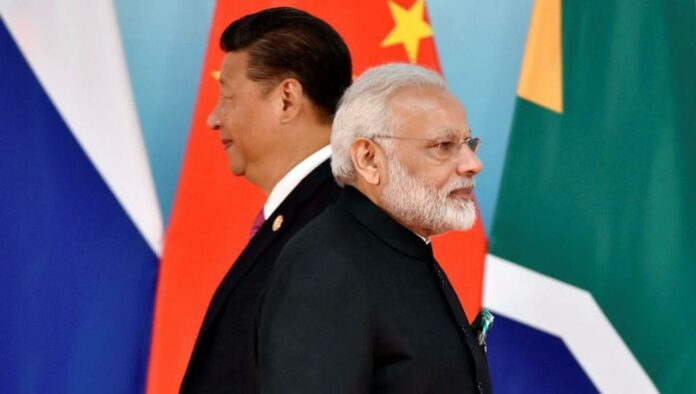UPDATED: 5:39am – Foreign ministry spokesman Geng Shuang said he wasn’t sure whether Indian Army chief Gen Bipin Rawat was speaking for himself or for the Indian government.
India and China need to ensure that their ties, which were “affected and undermined” in the past few months, are not derailed again, foreign minister Wang Yi said on Thursday, adding it is important to ensure relations remained on track.
The Chinese foreign ministry also reacted to Indian Army chief Gen Bipin Rawat’s remarks that the country should be prepared for a potential two-front war with China and Pakistan, and said Rawat should refer to President Xi Jinping’s contention that the two countries are each other’s development opportunities and not threats.
“For the past few months, for clear reasons, China-India relations were affected and undermined. Going forward the two sides need to work together to follow up on the consensus reached by the two leaders and make sure bilateral relations will stay on track,” Wang said.
The consensus Wang referred to during a joint news conference with Nepal’s foreign minister Krishna Bahadur Maharawas was said to have been reached at a meeting between Prime Minister Narendra Modi and President Xi on the margins of the Brics Summit in Xiamen on Tuesday.
Soon after Wang’s news conference, the foreign ministry urged the Indian Army chief to refer to Xi’s contention that India and China are each other’s development opportunities and not threats. Rawat had on Wednesday referred to the recent standoff with China at Doklam and said the situation could gradually snowball into a larger conflict on India’s northern borders.
Foreign ministry spokesman Geng Shuang said he wasn’t sure whether Rawat was speaking for himself or for the Indian government.
“We have noted this statement. We have noted some Indian press reported his remarks are shocking. We don’t know whether he was authorised to speak those words or whether it was spontaneous or whether it represented the position of the Indian government,” Geng told a regular news briefing.

“Two days ago, President Xi pointed out that the two sides are each other’s development opportunities, not threats. We hope India could view China’s development in a correct and rational way…We should respect each other, seek common ground and shelve differences, and preserve peace and tranquillity in border areas,” Geng said.
“We hope this military official could see clearly this trend and contribute to the development of China-India relations, and say something more in that regard.”
Earlier, foreign minister Wang spoke about working on improving the bilateral relationship. “Firstly, the relationship should not be derailed and that seeking harmonious relations and win-win cooperation was the natural choice and the right choice for both,” he said.
“Secondly, there should be no confrontation. We need to build strategic mutual trust and the two sides need to work to really look at each other as cooperative partners rather than be driven by an old fashioned mindset and regard each other as rivals or threat.”
The two sides had been locked in a military standoff for more than 70 days in the Doklam or Donglang area, where Beijing was building a road over which New Delhi had security concerns.
China repeatedly blamed India for intervening in the area and accused Indian soldiers of “illegal trespass”. The Donglang area is under China’s control but claimed by Bhutan. The situation was resolved last week, days before the Brics Summit.
-HT





























